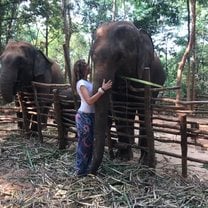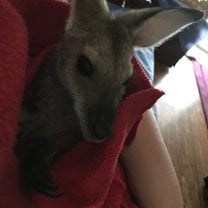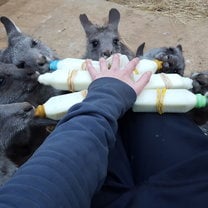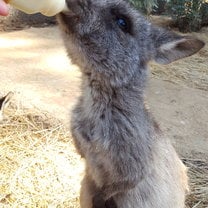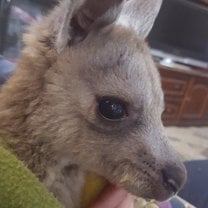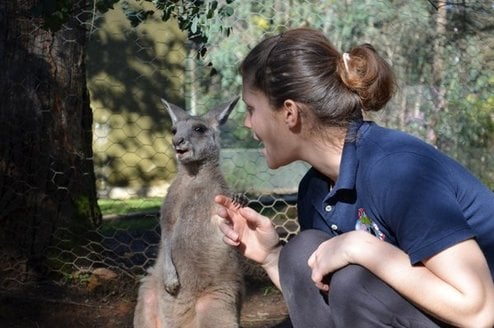What position do you hold at Oceans 2 Earth? What has been your career path so far?
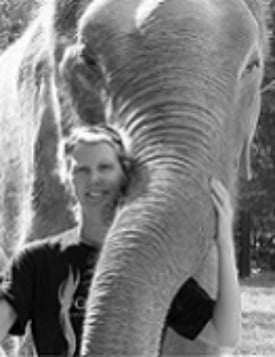
Tracy: I am Co-Founder and Director at Oceans 2 Earth. I hold Australian qualifications in Teaching (BTeach Deakin) and post graduate qualifications in International Development (RMIT), Educational Studies (BEdSt Qld) and Education (BEd Deakin). I have worked in management across various industries, however helping animals is where my heart is. This is how Oceans 2 Earth came to be.
I saw the need to provide resources and funding to small organizations that do not receive any assistance from the government and placing volunteers is a great way to help wildlife and domestic animal carers achieve their objectives of rescuing, caring for, rehabilitating and releasing animals.
Since 2011, I have become involved with numerous campaigns aimed at abolishing practices that abuse, enslave and exploit animals including factory farming, animal circuses, jumps racing, over fishing and the fur and cosmetics industries. I have fundraised for orang-utan rescue, rehabilitation and habitat protection, have conducted research and evaluated community based human - elephant conflict mitigation programs and I am an avid campaigner about the impacts of palm oil production in South-East Asia.
What do you most enjoy about your role?
Tracy: In my role, I enjoy working with animal welfare organizations and assisting in helping the animals in their care. The organizations we partner with are small groups, usually living in out of the way places that are low in resources and funding, but have huge costs and a massive workload looking after animals. The huge animal food and medical bills that these organizations incur is very surprising and it is a wonder that many of them stay operational.
In fact, many of them don’t… Oceans 2 Earth aim to set up rewarding volunteer programs for animal lovers while the real benefit is to the organization itself. To have an extra pair of hands and a volunteer that can contribute financially to the project enables the initiative to survive. To see strong and emotional relationships form between volunteers, carers and animals is the most rewarding part of my role.
Secondly, I really enjoy the relationships that I form with volunteers in the lead up to their volunteering placement. Volunteers can book up to a year in advance so that equates to a lot of chats and emails over time! I am always on hand to assist with project information, travel advice and anything else the volunteer needs.
As we have a huge range of Australian projects, we are the ‘go-to’ organization for Aussie animal volunteering. We have projects across the whole country, and it is a big place, so we can help with tips and tricks on how to get around and how to travel in between projects.
Did you volunteer abroad? If so, where and what inspired you to go?
Tracy: My personal animal volunteering pursuits have taken me to Africa, Asia and South America where I have met many like-minded animal lovers and conservationists and has developed lifelong friendships with people dedicated to the plight of animal equality and the protection of our natural resources.
In Africa, I worked with a wildlife community to best assist them in mitigating the human-elephant conflict they were experiencing in their local village. I have spent time in Asia volunteering with wildlife, rescued elephants and cats and dogs.
In South America, I volunteered at a kitten rescue and rehoming project. And of course, I have done a lot of volunteering in my home country Australia rehabilitating wildlife.
What do you most love about Oceans 2 Earth's programs? [what makes them so unique?]
Tracy: Working collaboratively towards meeting the goals of the organization is the main objective of our business and something I love. I have worked solidly for many years developing relationships with small grassroots organizations and wildlife carers that are dedicated to animal welfare. It is the work that I do with these organizations that is most fulfilling.
Seeing the difference that O2E volunteers make when they care for animals on an O2E project is very rewarding for everyone involved. I love that O2E projects are so unique and give volunteers the opportunity to care for some amazing wildlife. There is nothing better than seeing an animal be released back into their natural habitat. A bird taking flight, a wallaby hopping quickly away or a turtle dashing back deep into the ocean.
O2E projects are unique in that we:
- Are dedicated to animal welfare and only offer animal welfare projects
- Have created and developed volunteer programs in animal care environments that no one else has access to
- Specialize in Australian animal care projects
- Are a not for profit organization
- Do not support commercial ventures that profiteer from animals, e.g. wildlife parks, shows and zoos
- Have strict ethical standards when it comes to partnering with organizations and carers. You can find these on our website
- Work with wildlife communities through education programs to shift negative attitudes and treatment of animals to benefit all
My hope for the future is to open up people’s eyes to the plight of animals and subsequently see new generations head a world of change. I would like to see a shift in focus towards an acceptance of global responsibility and sustainable measures taken to protect the environment in which we live. Animals should be treated as equals which would end the suffering that they face on a daily basis all over the world.
Any tips for someone considering their first experience abroad?
Tracy: I believe the first experience abroad is one of rapid learning, therefore go outside your comfort zone and challenge yourself. Be empathetic and accepting of people but stand up for what you believe in. This is an opportunity to assess your true values and entrench yourself fully into another culture, or in the case of animal welfare volunteering, another world.
If you are considering volunteering with animals, do your research and don’t be led into programs where animals are exploited. It is difficult to know which projects are genuine and which ones are simply using animals for making money, so just ask yourself, is this activity in the best interests of the animal? Who owns the organization? Does the organization, zoo or wildlife park make money from the animals?
If so, how are the animals affected? Where do the animals in care come from? Are they traded, bred in captivity or taken from the wild? The wildlife trade is the third biggest industry next to guns and drugs so be sure that when you give over your money that it is going towards animal welfare and not in the pockets of profiteering companies.
Working with animals and wildlife communities gives you a distinctive opportunity that opens up a world that you did not know existed. The people you meet at the grassroots levels of care and rehabilitation will inspire you and drive you, and you may go away a changed person.
The animals you meet will melt your very soul and they will always be in your heart. Be prepared to let the experiences you have, both positive and negative, provide you with determination, motivation and courage to stand up for what you believe and inspire change within your community.


